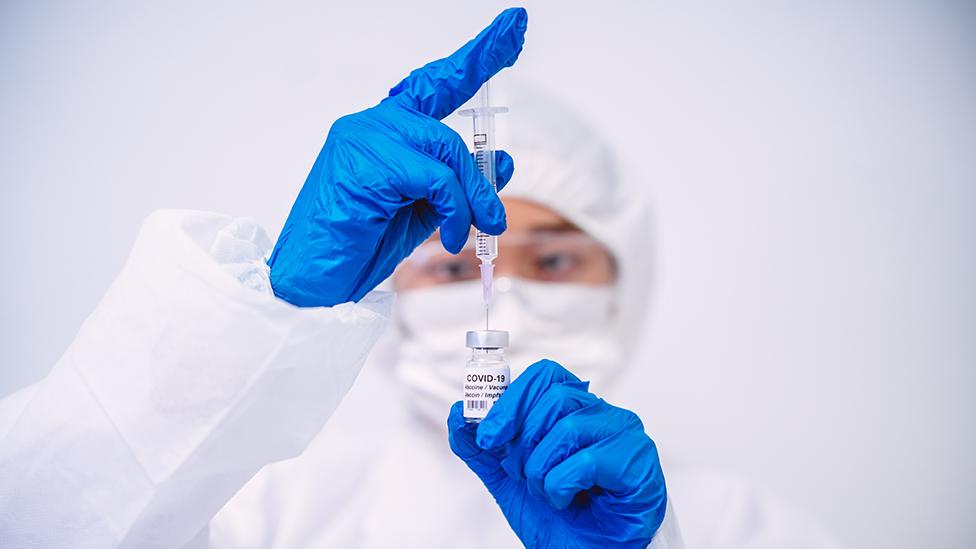Covid: Superhero images unhelpful, says nurse chief
- Published
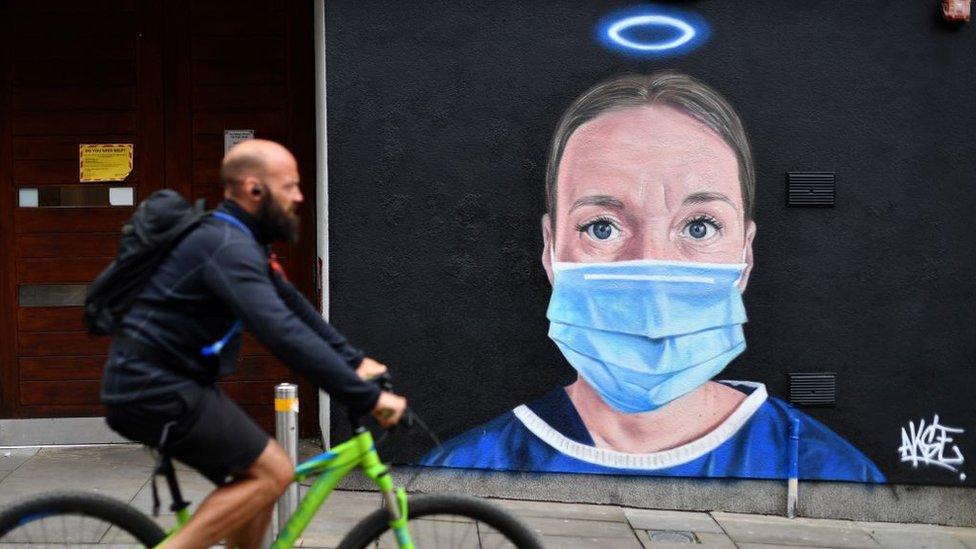
Nurse chiefs said images such as these produce unrealistic expectations
Portraying nurses as superheroes has placed added pressure on exhausted workers, Wales' top nurse has said.
Speaking ahead of International Nurses Day, the chief nursing officer for Wales said the NHS faced an unsustainable staffing gap.
There are more than 1,700 nursing vacancies in Wales, according to the Royal College of Nurses, external (RCN).
Sue Tranka said unrealistic expectations on staff following the Covid pandemic was not helping.
At the start of the pandemic, images of doctors and nurses as cape-wearing superheroes sprung up on everything from street art to mugs.
Ms Tranka said while it was appreciated by staff, it could also be unhelpful.
"It put an additional burden on people who are human beings," she said.
"It's a little unhelpful having that narrative because it implies we are flawless and will turn up every day on top form - you just can't do that.
"I would want to change that rhetoric - we are degree-trained individuals who come to work every day wanting to do the best that we can."
While there has been a 69% rise in the numbers of nurses being trained in Wales, retention remains a major issue.
Between April 2020 and March 2021, 1,458 newly-registered nurses joined their professional register, but 1,243 left, according to the Nursing and Midwifery Council.
It means NHS Wales spent an estimated £360m over the past five years on agency nurses, midwives and nursing assistants.
"It's not all about pay. Yes they want to be rewarded fairly, but they want to give great care and they also want to work flexibly," said Helen Whyley, RCN director in Wales.
"Unless the NHS is going to accommodate that, in today's market there are plenty of opportunities elsewhere."
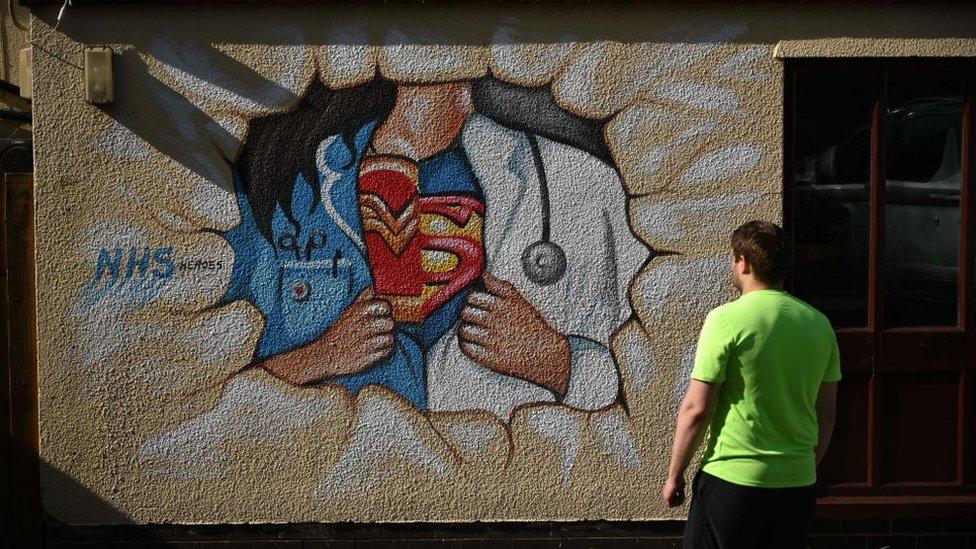
NHS workers were compared to superheroes during the pandemic
Dr Simon Young, deputy head of the school of care sciences at the University of South Wales, said evidence suggested that a number of students are entering healthcare "because of the superlative effort they've seen from healthcare professionals and the students".
"The students played a very key role in the effort during the pandemic, and they've definitely been motivated by that," he said.
'That extra mile'
Bev Scott is a second year nursing student at the University of South Wales, who is currently on placement at an intensive care unit. She said she was inspired to become a nurse after spending time in hospital.
"There's no better feeling than when you leave a shift and you've done something positive that will impact somebody, maybe for the rest of their lives, for all you know," she said.
"I've had an experience in hospital which was a very, very scary time and I remember a specific nurse who went that extra mile and made a massive difference in my recovery - and that's the things that people remember."
Fellow student Demi Parsons said: "When I was young I saw the care the nurses provided my grandfather when he was ill, especially during the end stage of his life.
"We became so close to the nurses and I wanted to give something back."
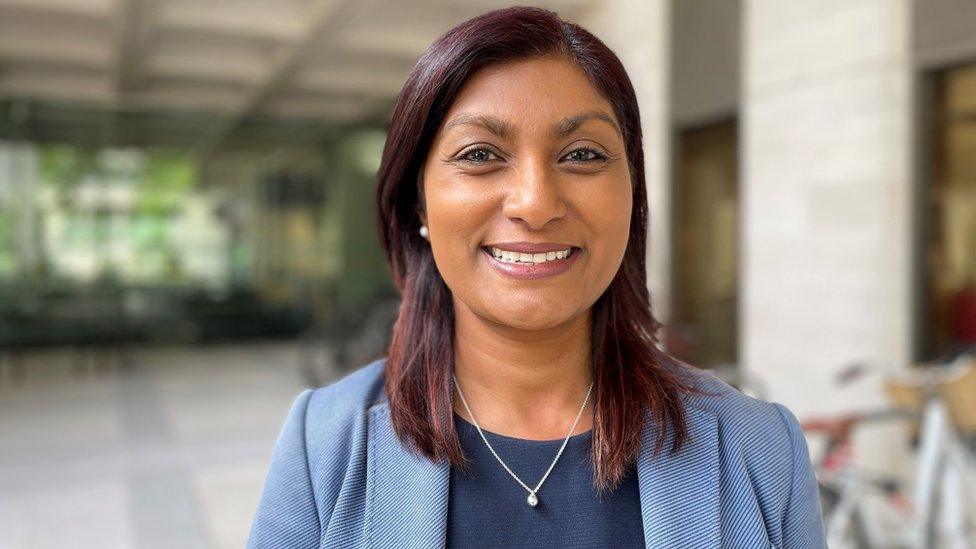
Chief nursing officer Sue Tranka joined the NHS as a nurse in 1999 via an international programme
More than 400 nurses from across the world are expected to come and work in Wales this year through a new Welsh government programme.
It is a route Ms Tranka took herself, having trained in South Africa and recruited to work in the NHS in Sunderland in 1999.
However, she believes international recruitment is a short-term fix and Wales must look to homegrown nurses for a longer-term solution.
"Health Education Improvement Wales, external is undertaking a piece of work around workforce planning currently - that's the first time we will have done such a comprehensive piece of work in Wales," she said.
"That will tell us not just about the number of nurses we need but the type of workforce we require around the patient."
She said that may mean a mix of apprentices and cadets to advanced practice and nurse consultant roles.

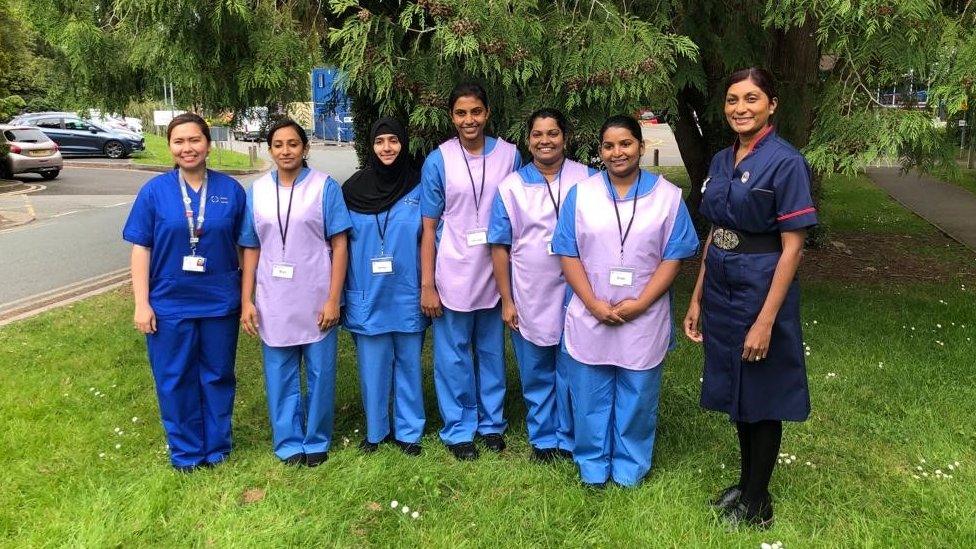
The latest wave of overseas nurses to the Aneurin Bevan University Health board with trainer Maria Cruz (left)
One nurse who came to Wales from the Philippines five years ago on the lowest grade is now training new recruits.
Maria Cruz helps teach nurses who have come to the Aneurin Bevan health board from overseas.
Her work has led to an excellence award from the chief nursing officer.
"I was a manager back home but I was thirsty to learn more, to grow, and that's why I decided to come to the UK," she said.
Ms Cruz is spending five days with nurses who arrived just a week ago to help them adjust to working on an NHS ward.
"It's not exactly like we've been doing back home, for example, the terminologies that we use, because we use American English, and here it's British terminology so I have to tell them that."
She described the nursing shortage as a "global problem".
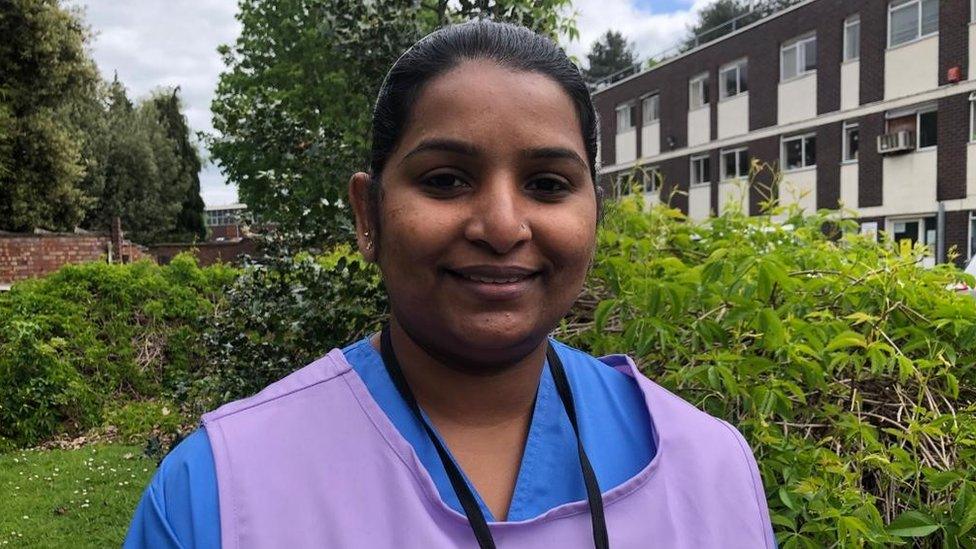
Sony John followed her cousin over to work the Welsh NHS
Sony John is one of the nurses Ms Cruz is training at Nevill Hall Hospital, Abergavenny.
She arrived from Kerala in India on 4 May after her cousin, who already works in the nearby Grange Hospital, recommended the health board
"I'm very proud to be an NHS nurse," said Ms John.
She added that her transition had been helped by the health board offering accommodation to her and other new arrivals.
"It's a golden opportunity, to work here," Ms John said.
"There are many Indian nurses working here and in European countries and there are many benefits."

BORN DEAF, RAISED HEARING: Jonny Cotsen explores what it means to live in two different worlds
MARGINS TO MAINSTREAM: Michael Sheen introduces new writers revealing their truths

- Published24 April 2022
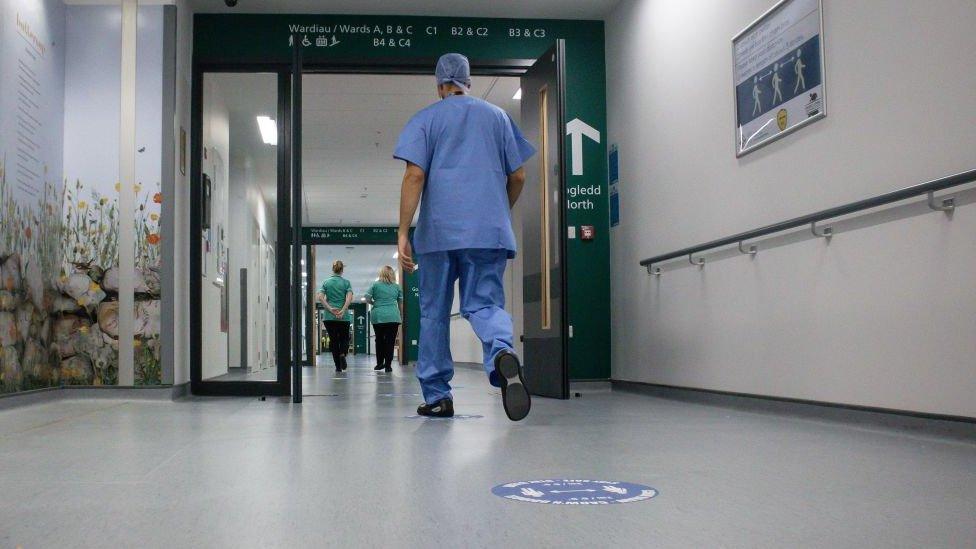
- Published13 April 2022
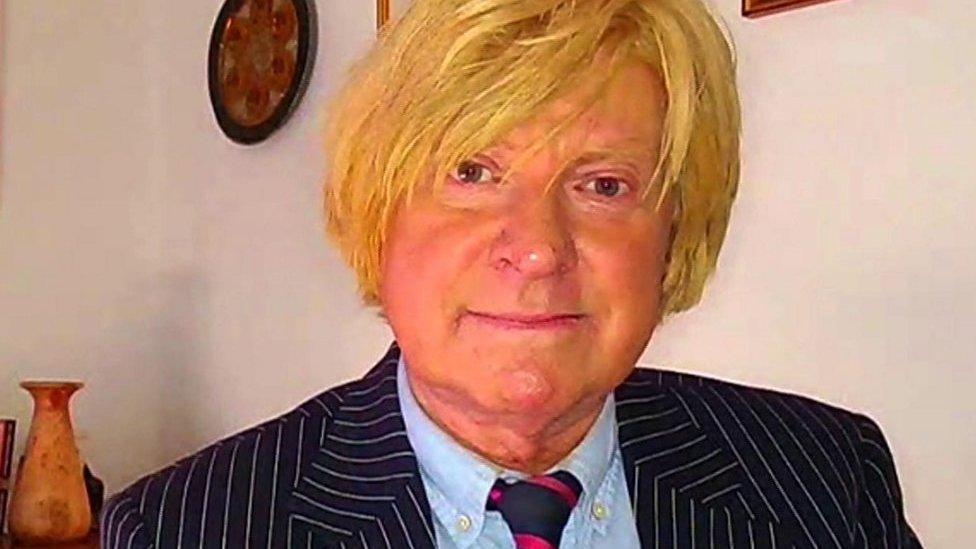
- Published11 March 2022
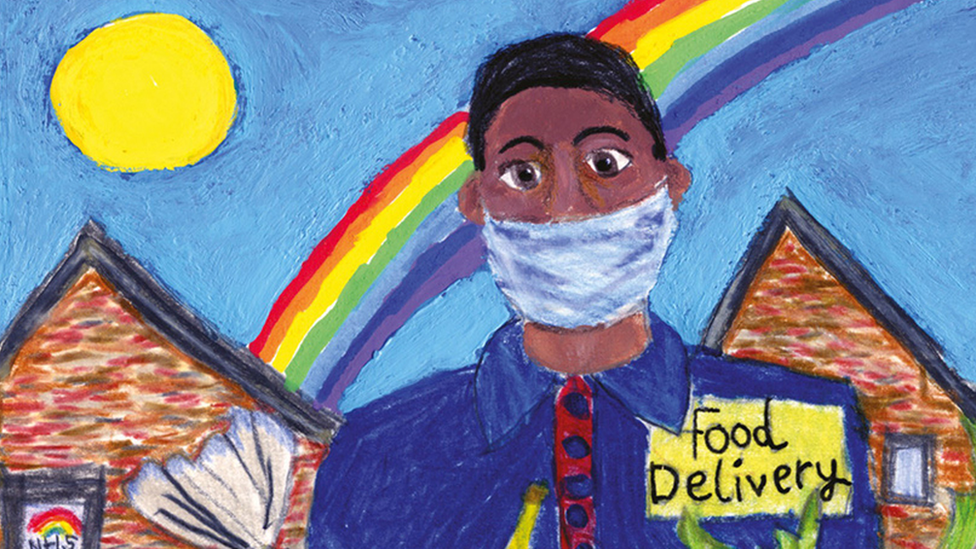
- Published10 March 2022
- Published4 January 2022
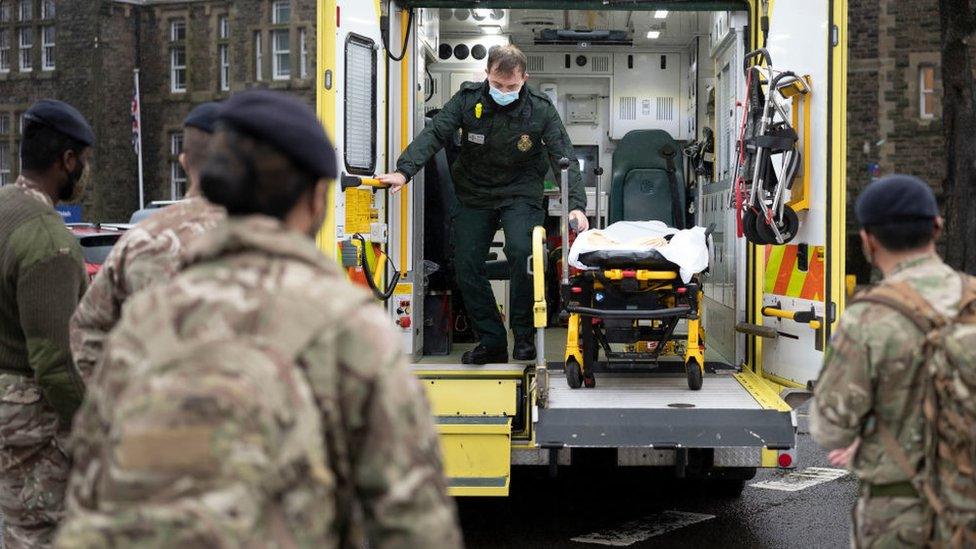
- Published10 December 2021
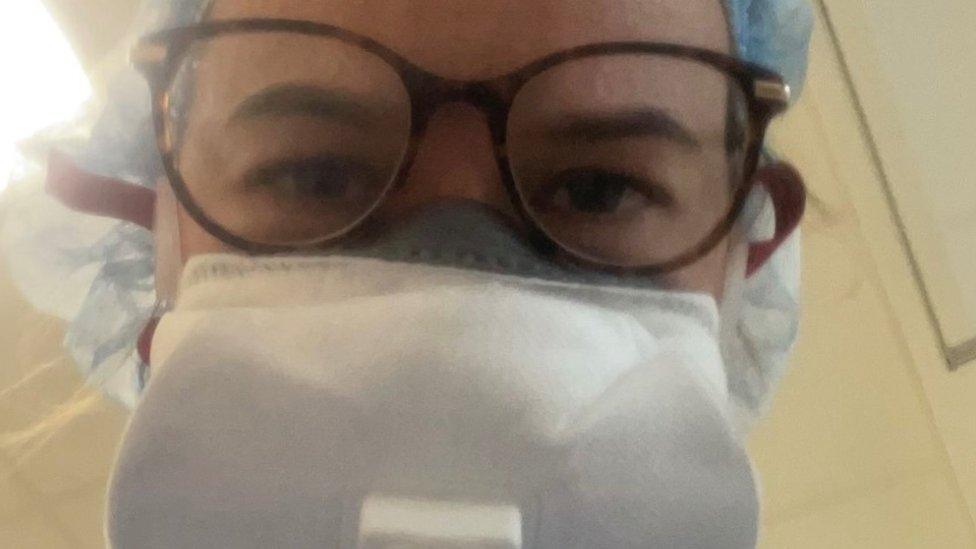
- Published9 November 2021
